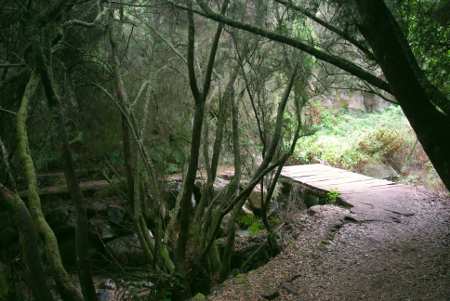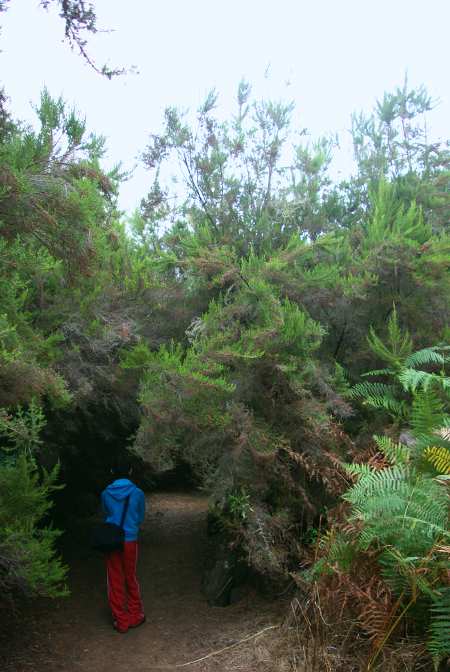
THIS SITE IS CLOSED UNTIL FURTHER NOTICE.
One of the best archaeological sites on La Palma is La Zarza and La Zarzita, in Garafía.
You have to walk, but it’s a beautiful stroll through woods of heather and bayberry trees. Yes, heather is a tree here – see the top photo.
The whole walk takes about an hour, and first bit of the path is the steepest. It’s clearly signposted.
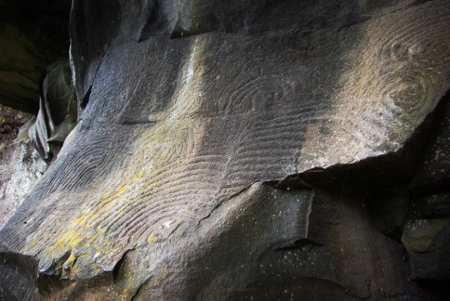
You reach La Zarza first. Here there is a cave with rock carvings around the entrance. The 29 carvings themselves are low relief swirls and meanders. they are definitely pre-Hispanic, made by the Benawara at least 500 years ago. They were only discovered in 1941. Or rather rediscovered. I have been told the local shepherds knew all about the place, but nobody thought to ask them.
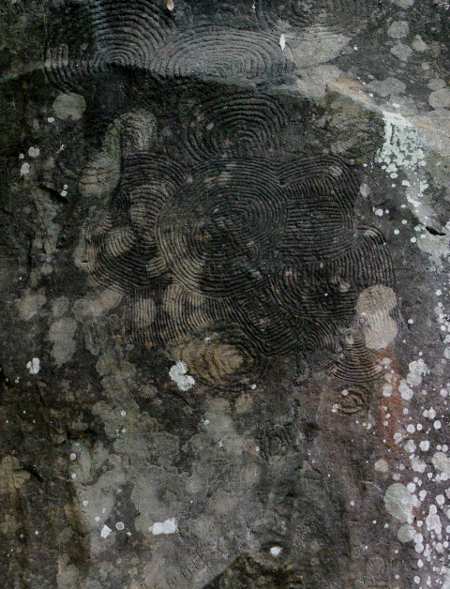
They remind me a little of cup and ring stones on the Yorkshire Moors, only these are much more elaborate. It must have taken hours and hours to produce the designs, hammering on the rock “canvas” with another rock.
La Zarzita is a short walk away, and has 18 carvings.
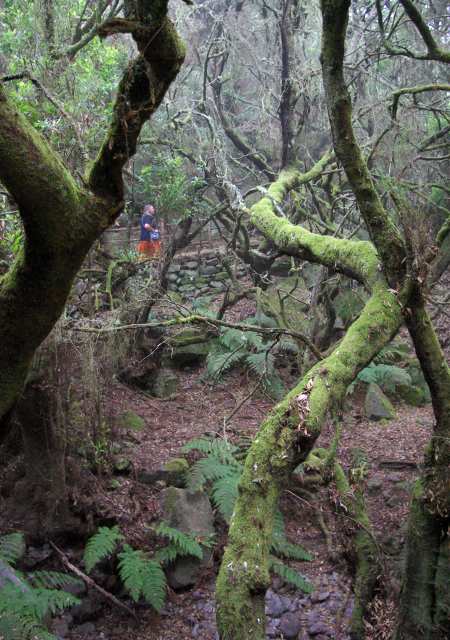
La Zarza and La Zarzita are the most spectacular, but there are lots of similar sites on the island. Archeologists disagree on the meaning of the carvings. Certainly they’re nearly always found near water and/or pasture for goats, so most of the explanations focus on fertility and water cults.
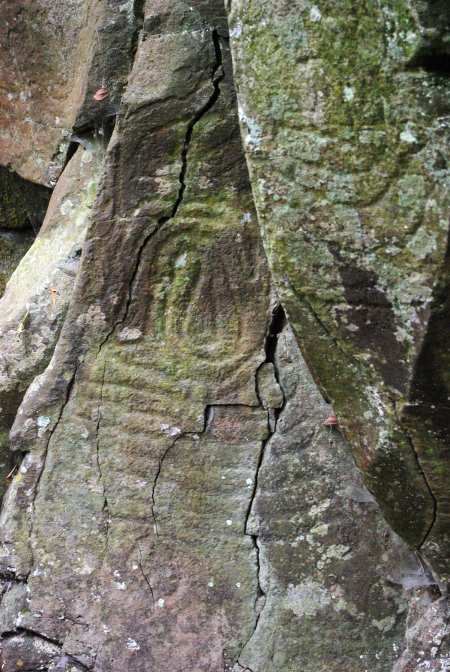
Most visitors arrive by car. The car park is signposted, just off the main road around the north of the island, between La Mata and Llano Negro. Entrance is free to residents of Garafía, and 1.80€ for everyone else, and includes a small museum. In summer they open from 11 am – 7 pm and in winter, from 11 am to 5 pm.
The website is here.
There’s another famous archeological site at Belmaco in Mazo. That has an easier, less beautiful walk, more inhabited caves, and a larger museum, but the rock carvings are smaller and there are fewer of them.
